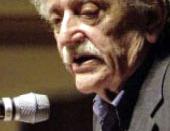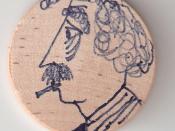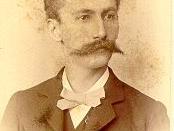In his Best Selling work Slaughterhouse-Five, Kurt Vonnegut attempts to elucidate the power of free will by using the protagonist, Billy Pilgrim's life as an exemplar to illustrate how free will is questionably nonexistent. Vonnegut exploits Billy's abduction of the Tralfamadorians. Through his abduction Billy discovers the Tralfamadorian's view on life. The Tralfamadorians see in a fourth dimension, time. Because of this they are capable of seeing their past, present and future. Billy eventually acquires this ability, seeing his present, past, and future uncontrollably. Even though he can live and re-experience moments in his life, he is never capable of changing the conclusion of the events; he soon discovers this once he is taken back to horrible moments in his life including his war experience at the fire-bombing of Dresden. "Vonnegut admits to the inevitability of death, with or without war. But acting as if free will exists does not mean that it actually does."
(Lichtenstein)Kurt Vonnegut was born on November 11, 1922 in Indianapolis, Indiana. He was the youngest of the three children of Kurt Vonnegut Sr. and Edith Lieber. Vonnegut was a part of a wealthy family that got hit by the Depression. When Vonnegut was in high school, he gained early writing experience by writing for his high school's daily paper. After he graduated, he attended Cornell University in 1940 and, under pressure from his father, studied chemistry. He had little interest in the subject, and his performance showed it. He did, however, enjoy working for the Cornell Daily Sun. In 1942, Vonnegut, as a junior, enlisted in the Army as a private. In 1944 he was assigned to the European theater. On December 22, 1944, Vonnegut was captured in the Battle of the Bulge. He was held as a prisoner of war in...


